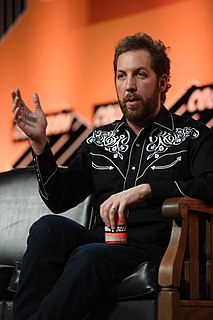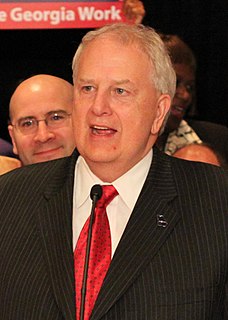A Quote by Chris Sacca
I find talented, driven, boundlessly ambitious people and help them solve problems that will hopefully improve the lives of millions. Sometimes this means investing in startup founders. Other times, it involves helping organize and fundraise for charity or politics.
Related Quotes
Teaching and writing, really, they support and nourish each other, and they foster good thinking. Because when you show up in the classroom, you may have on the mantle of authority, but in fact, you're just a writer helping other writers think through their problems. Your experience with the problems you've tried to solve comes into play in how you try to teach them to solve their problems.
My views on charity are very simple. I do not consider it a major virtue and, above all, I do not consider it a moral duty. There is nothing wrong in helping other people, if and when they are worthy of the help and you can afford to help them. I regard charity as a marginal issue. What I am fighting is the idea that charity is a moral duty and a primary virtue.
We should certainly not be perpetuating further harm to others or to the environment. Suppose that workers at ExxonMobil are trying to unionize. We have two choices: to help them improve their lives, or to keep away so that their lives will be worse. Neither choice has any effect on use of fossil fuels. So radical organizers can both help them unionize and improve their lives, and convince them to find a different way to survive and work for ending the use of fossil fuels.
Google is a place filled with open-minded, innovative people from all over the world. It's a fun place to work, and it's a place where different kinds of skills come together. As we grew from a startup, I remember our founders saying that people don't want us to change our culture, but we need to keep making it better. It's an attitude: "We are the ones we've been waiting for." Silicon Valley in general, tech in general, means using technology to solve big problems in the world.
When we want to help the poor, we usually offer them charity. Most often we use charity to avoid recognizing the problem and finding the solution for it. Charity becomes a way to shrug off our responsibility. But charity is no solution to poverty. Charity only perpetuates poverty by taking the initiative away from the poor. Charity allows us to go ahead with our own lives without worrying about the lives of the poor. Charity appeases our consciences.
I had received Christ as my savior when I was a child, but I didn't know anything. I didn't have any knowledge. I didn't go to church. And I had a lot of problems, and I needed somebody to kind of help me along. And I think sometimes even people who want to serve God, if they have got so many problems that they don't think right and they don't act right and they don't behave right, they almost need somebody to take them by the hand and help lead them through the early years. And that's really what discipleship is. It's helping people.



































